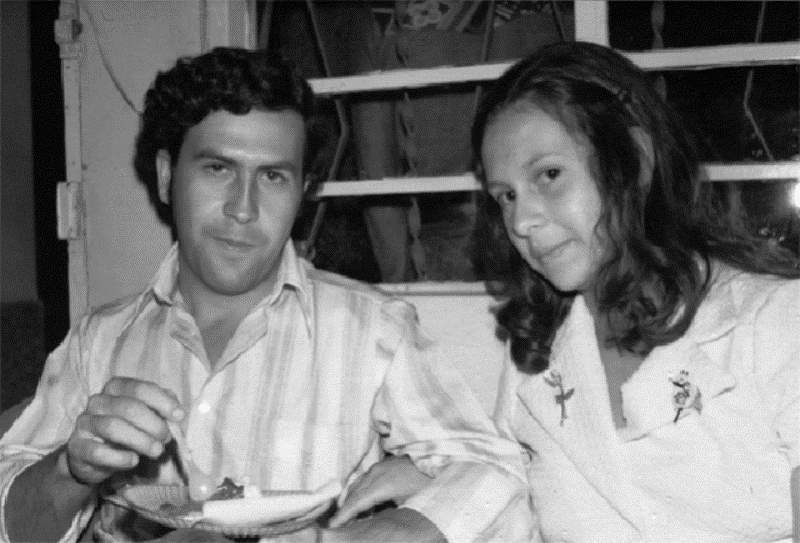Pablo Escobar Tata has become a fascinating topic of discussion, intertwining the notorious legacy of Pablo Escobar with the modern-day influence of Tata Group. This unique intersection has sparked curiosity among history enthusiasts, business professionals, and crime drama lovers alike. In this article, we delve deep into the historical and contemporary narratives surrounding these two influential entities. By exploring their individual stories, we aim to uncover the connections that have emerged in popular culture and global discourse.
From the drug kingpin's reign of terror in Colombia to the Tata Group's global business empire, this article explores how their names have converged. As we analyze the impact of Escobar's criminal empire and Tata's ethical corporate leadership, we aim to provide a balanced perspective on their contrasting legacies. This exploration is not just about two names; it's about understanding the broader implications of power, influence, and legacy.
Whether you're a fan of historical analysis or a business enthusiast, this article offers valuable insights into the dynamics of leadership, crime, and corporate governance. Join us as we unravel the layers of this intriguing narrative, examining the facts, myths, and cultural significance of Pablo Escobar Tata.
Read also:Mt Dew Camacho A Rising Star In The World Of Entertainment
Table of Contents
- Biography of Pablo Escobar
- Overview of Tata Group
- The Rise of Escobar's Criminal Empire
- Tata's Commitment to Business Ethics
- Pablo Escobar in Popular Culture
- Global Impact of Tata Group
- The Legacy of Escobar and Tata
- Historical Context and Analysis
- Comparing the Two Legacies
- Conclusion and Final Thoughts
Biography of Pablo Escobar
Early Life and Rise to Power
Pablo Escobar, born on December 1, 1949, in Rionegro, Colombia, grew up in a modest family. His early life was marked by poverty and hardship, which many believe fueled his ambition to rise above his circumstances. Escobar's criminal career began with petty crimes, but he quickly escalated to smuggling and drug trafficking.
By the 1980s, Escobar had become the leader of the Medellín Cartel, one of the most powerful and violent drug cartels in history. His empire was responsible for smuggling vast quantities of cocaine into the United States, generating billions in revenue.
Data and Biodata
| Full Name | Pablo Emilio Escobar Gaviria |
|---|---|
| Date of Birth | December 1, 1949 |
| Place of Birth | Rionegro, Colombia |
| Occupation | Drug Trafficker, Criminal |
| Date of Death | December 2, 1993 |
Overview of Tata Group
History and Evolution
The Tata Group, founded in 1868 by Jamsetji Tata, is one of India's largest and most respected conglomerates. Known for its commitment to ethical business practices, the Tata Group operates in diverse sectors, including automotive, telecommunications, and consumer goods.
With a global presence spanning over 100 countries, Tata has established itself as a leader in corporate governance and sustainability. The group's emphasis on social responsibility and employee welfare has earned it a reputation as a trusted brand worldwide.
The Rise of Escobar's Criminal Empire
Pablo Escobar's rise to power was marked by a combination of strategic brilliance and ruthless violence. At the peak of his career, Escobar controlled an estimated 80% of the global cocaine trade, earning him the title of "The King of Cocaine."
His empire was built on a network of smugglers, corrupt officials, and enforcers who ensured his dominance. However, this power came at a great cost, as Escobar's reign was marred by violence, corruption, and human rights abuses.
Read also:Unveiling The Rich History And Meaning Of The Penny Surname
Tata's Commitment to Business Ethics
In stark contrast to Escobar's criminal empire, the Tata Group has consistently prioritized ethical business practices. The group's founding principles emphasize trust, integrity, and accountability, which have guided its operations for over a century.
Tata's commitment to corporate responsibility is evident in its initiatives to improve working conditions, promote environmental sustainability, and support local communities. This ethical stance has earned the group widespread respect and admiration globally.
Pablo Escobar in Popular Culture
Media Representation
Pablo Escobar's story has been immortalized in numerous films, documentaries, and TV series, most notably Netflix's "Narcos." These portrayals have brought his legacy to a global audience, sparking debates about crime, power, and justice.
- Netflix's "Narcos" portrays Escobar's rise and fall with dramatic intensity.
- Documentaries like "Escobar: Paradise Lost" offer a deeper look into his criminal empire.
- Books such as "Killing Pablo" provide detailed accounts of his life and the efforts to bring him down.
Global Impact of Tata Group
The Tata Group's influence extends far beyond India, with a significant presence in markets across Asia, Europe, and North America. Its subsidiaries, including Tata Motors and Tata Consultancy Services, are recognized as industry leaders in their respective fields.
Through its global operations, Tata has contributed to economic growth and development, while maintaining a strong commitment to ethical practices. This dual focus on profitability and responsibility has set a benchmark for corporate governance worldwide.
The Legacy of Escobar and Tata
While Pablo Escobar's legacy is synonymous with crime and violence, the Tata Group represents the opposite—ethical leadership and corporate responsibility. Both names evoke strong emotions, but their impact on the world is vastly different.
Escobar's story serves as a cautionary tale about the dangers of unchecked power, while Tata's journey highlights the potential for businesses to create positive change. Together, they offer valuable lessons about the choices leaders make and their lasting impact on society.
Historical Context and Analysis
The Drug War and Its Consequences
The war on drugs, initiated in the 1980s, had profound implications for Colombia and the global community. Escobar's operations exemplified the challenges faced by governments in combating organized crime. His influence extended beyond drug trafficking, affecting politics, law enforcement, and everyday life in Colombia.
Despite the efforts to dismantle his empire, the drug trade continues to thrive, underscoring the complexity of the issue and the need for comprehensive solutions.
Comparing the Two Legacies
When comparing the legacies of Pablo Escobar and the Tata Group, the contrasts are stark. Escobar's legacy is defined by violence, corruption, and destruction, while Tata's is characterized by innovation, ethics, and progress.
This comparison highlights the importance of leadership and the choices individuals and organizations make. Whether it's building a criminal empire or a global business conglomerate, the impact of these decisions resonates across generations.
Conclusion and Final Thoughts
In conclusion, the story of Pablo Escobar Tata offers a fascinating glimpse into the intersection of crime and corporate leadership. While Escobar's legacy is tarnished by his criminal activities, Tata's reputation shines as a beacon of ethical business practices.
We invite you to share your thoughts and insights in the comments below. Explore more articles on our website to deepen your understanding of history, business, and leadership. Together, let's continue the conversation about the forces that shape our world.
Data Sources: BBC News, Tata Group Official Website, UNODC Report.


